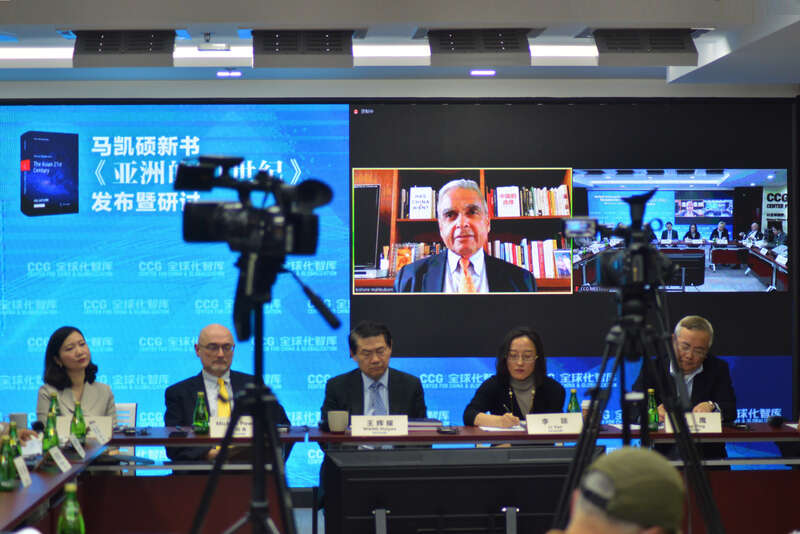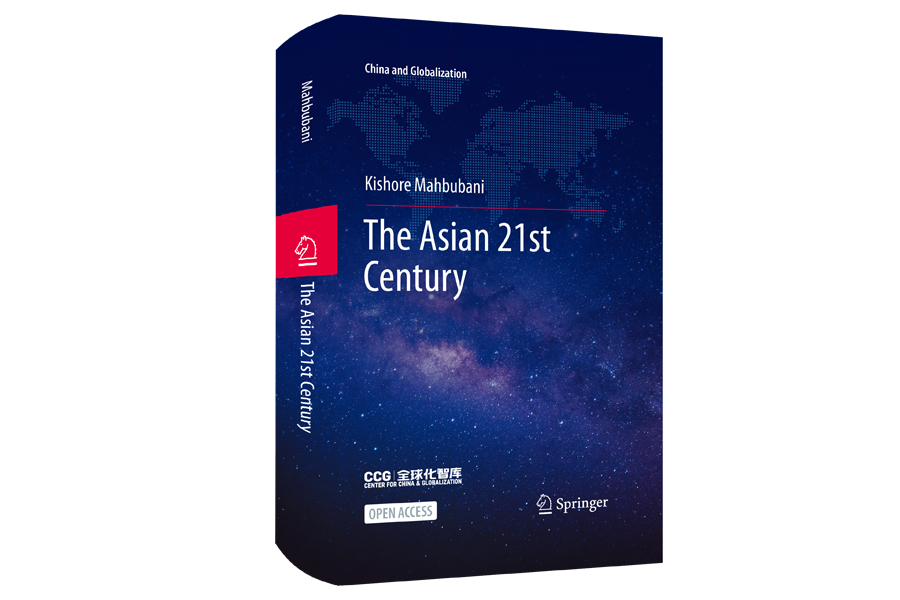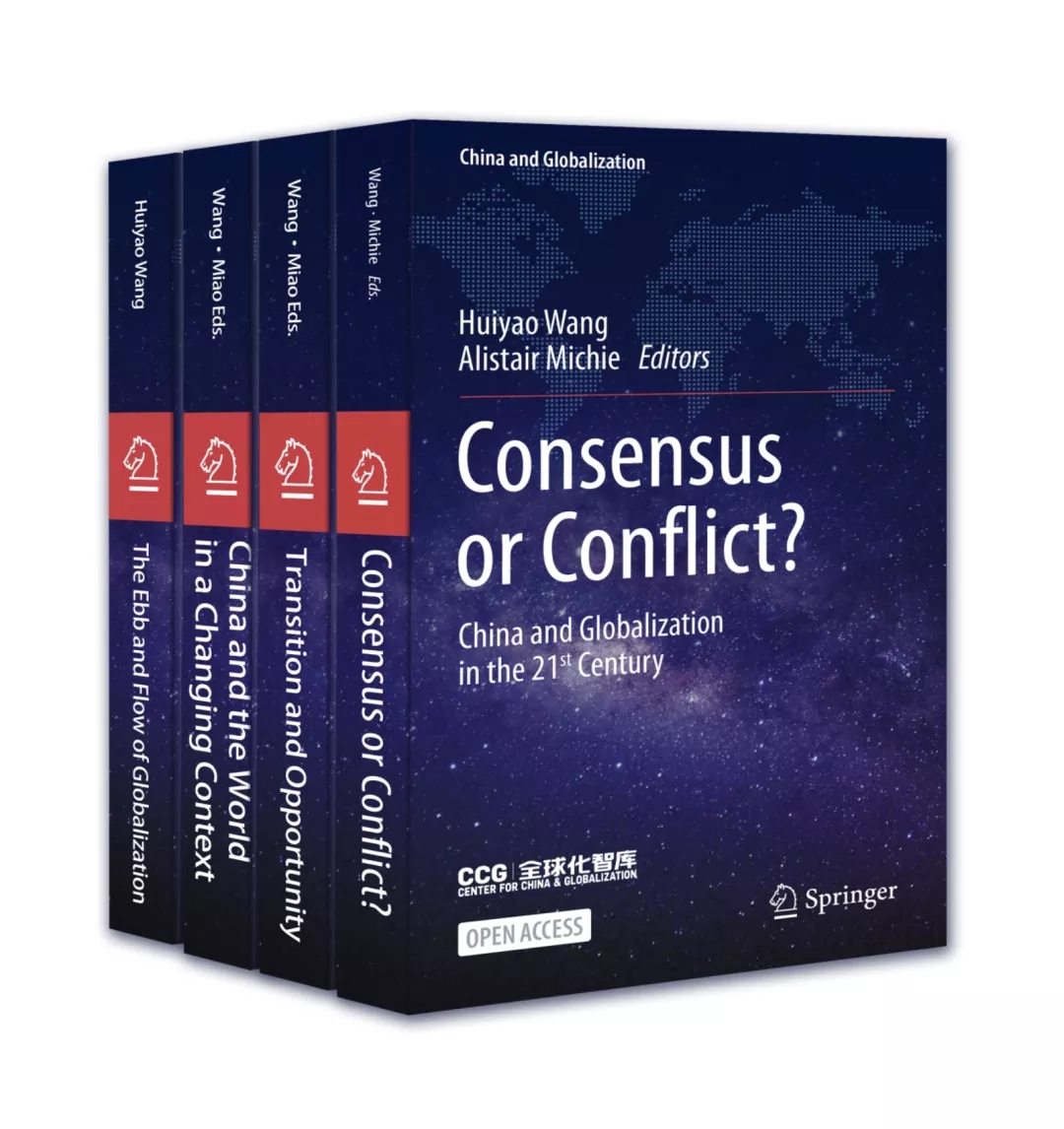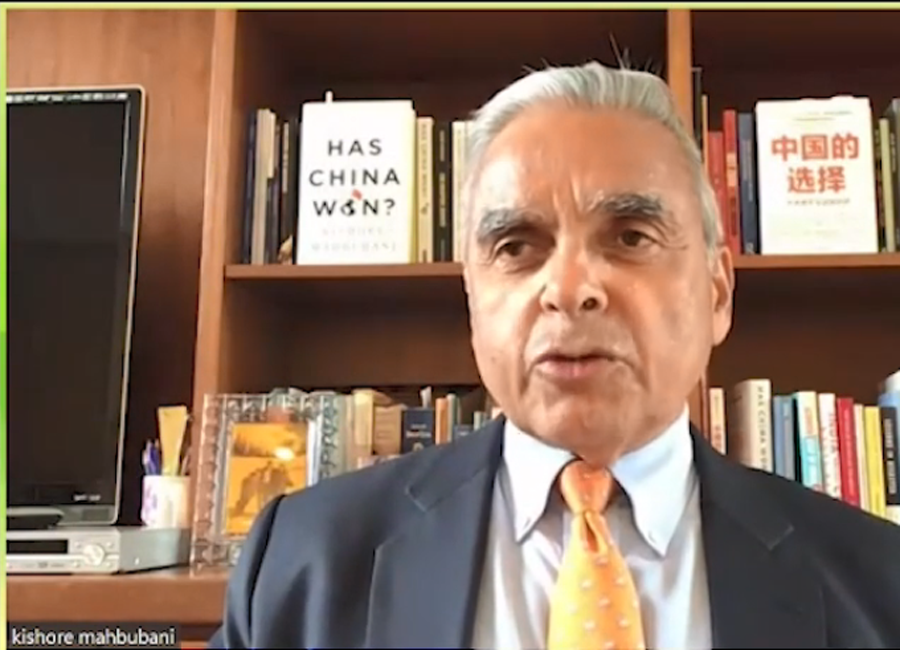Kishore Mahbubani: Asian countries should have cultural confidence
January 11 , 2022
On Tuesday, January 11, 2022, the Center for China and Globalization (CCG) and Springer Nature co-hosted an event in Beijing to launch the book The Asian 21st Century and held a roundtable discussion featuring academic experts on the theme of “Asia’s Century,” covering regional issues and developments.

The Asian 21st Century
Author: Kishore Mahbubani
Published in January, 2022
ISBN: 978-981-16-6813-5
Publisher: Springer Nature Publishing Group

Series Editors: Huiyao Wang Lu Miao
Publisher: Springer Nature Publishing Group
Download the ebook at Springer:
https://link.springer.com/book/10.1007/978-981-16-6811-1
The new book The Asian 21st Century was published online on January 1, 2022 and was written by Kishore Mahbubani, former Permanent Representative of Singapore to the United Nations and founding dean of the Lee Kuan Yew School of Public Policy at the National University of Singapore.

Kishore Mahbubani is known as a friend and astute observer of both the East and the West. During the roundtable, he had an in-depth exchange of views with a number of Chinese and foreign scholars on the opportunities and challenges facing Asia in the 21st century and discussed new global trends.
The following transcript is based on his speech at the event.
I want to give a structure for my remarks. And I’ll use the Marxist or Hegelian framework: thesis, antithesis, synthesis. The thesis is that the world of today, the small interdependent world we have today, was created by the West. The West generated globalization, both in the colonial era and in the post-colonial era. And as we know, the West was the strongest promoter of globalization, because they thought they would be the No. 1 beneficiary. They were the most successful societies, and the world economy opens, they’ll benefit. So we must thank the West, for giving globalization to the world.
But the antithesis is that the same countries that used to promote globalization have turned against globalization. In Europe, there’s a reluctance to open up economies. Certainly, in the United States today, the U.S. Congress will not pass any free trade bill. This is quite remarkable. The West used to promote free trade, but now the West is frightened of free trade. That’s the antithesis.
So, then we come to the synthesis. The synthesis is that the biggest beneficiary of globalization in the world today are the Asian countries. Frankly, that’s why we call this the Asian 21st century. It’s ironic. It’s the West that pushed for globalization, which has woken up Asia and created the Asian 21st century. That’s remarkable. But now we have the Asian 21st century. Just to give you one statistic, in terms of Purchasing Power Parity, the PPP, the top 4 economies are No. 1 China, No. 2 the United States, No. 3. India, and No. 4 four Japan. Three out of the top 4 are in Asia.
So, the question is, how can Asian manage the 21st century? My key point is that Asia should take on more responsibilities, especially the responsibility to maintain global multilateral institutions. Because these institutions were created by the West, including the United Nations, the World Trade Organization, and the World Health Organization, but they are all cooperative. So, we in Asia should therefore learn to provide more leadership. I know that culture came up earlier, but one very important thing is cultural confidence. It is cultural confidence that explains why Asia is launching the world’s largest free trade agreement, which many of you referred to, the Regional Comprehensive Economic Partnership, RCEP.
It’s very important that Asia now feel a sense of responsibility. But this also requires greater cooperation among the Asian countries. And here I’m glad that at the beginning, I think Doctor Rong mentioned India. I think India’s role is very important. And to be very frank, India has one foot in Asia, and one foot in the West, and it’s deciding which way to go. It’s a pity that India did not join the RCEP. Because if India had joined the RCEP, India could also benefit from Asia’s growth and succeed. So, I hope all of us, all the 15 members of RCEP, should try to persuade India to come and join.
And then the question was raised at the end. What about the rest of the world? What about West Asia? What about Central Asia? Or even South Asia? I think the answer is that they must come and learn from East Asia, especially from ASEAN. Because it was ASEAN that launched the Regional Comprehensive Economic Partnership. Without ASEAN, there will be no Regional Comprehensive Economic Partnership. Because as we know, in Northeast Asia there’s a lot of suspicion among China, Japan, and South Korea. You cannot negotiate a free trade agreement among these countries. But because ASEAN proposed it, China accepted it, Japan accepted it, South Korea accepted it, and that’s a big boost to global economic growth that ASEAN delivered.
So clearly, ASEAN must be counted as a key player in East Asia. And this is why, when we talk about the 21st Asian century, we should also mention ASEAN. It’s very important.
So, I hope I have answered some of the many questions you have raised. And I also hope that with all the questions you have raised, people will see why you need the book. I hope this book would serve as a guide to the Asian 21st century.
Prof. Kishore Mahbubani: a wiser approach for the West to take Asian 21st century is multilateralism
Topical News See more






